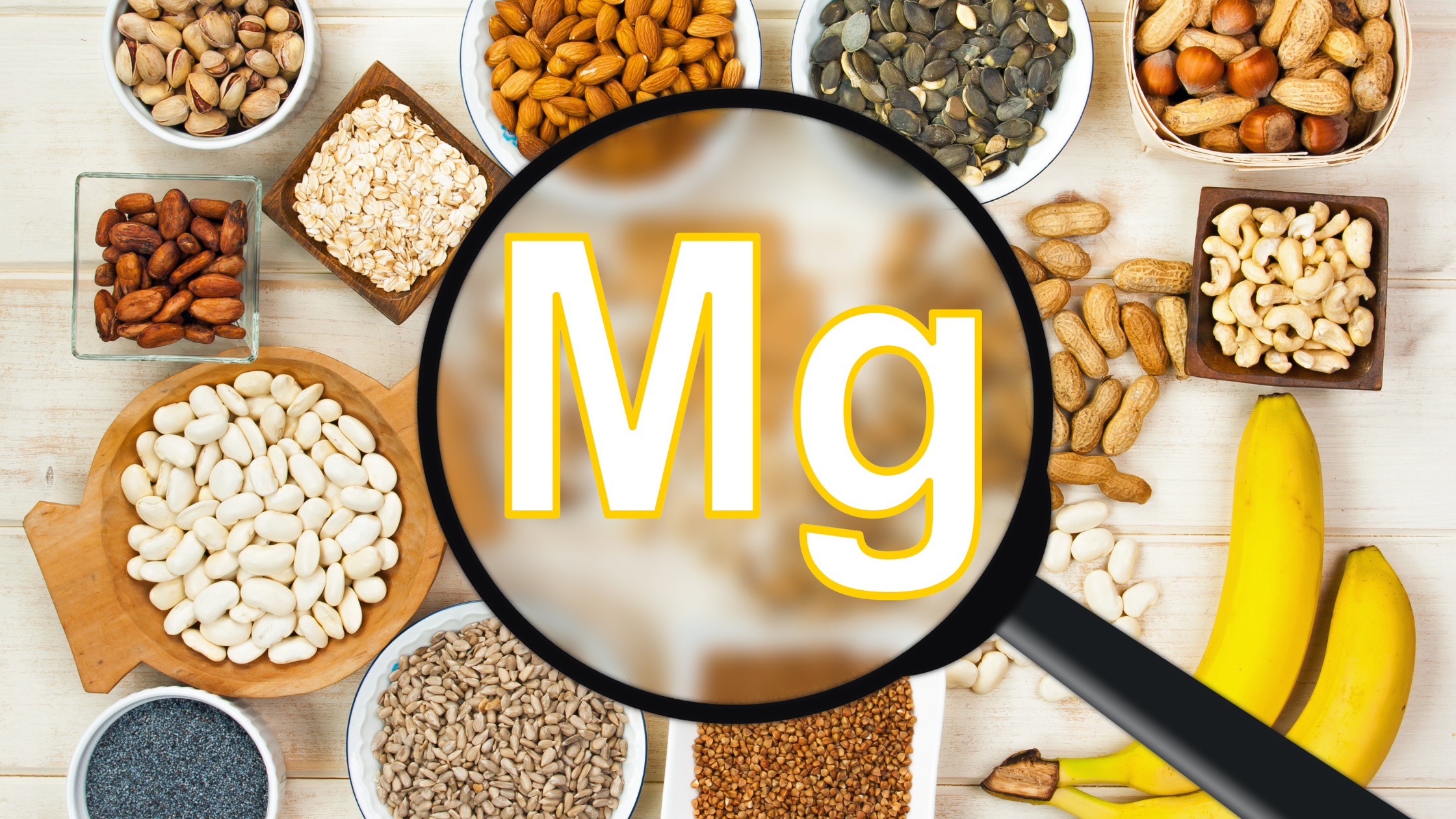
Magnesium Deficiency: Symptoms, Causes, and How to Prevent It
Have you been feeling unusually tired, twitchy, or struggling with poor sleep? You might be dealing with more than just stress or a hectic schedule—it could be magnesium deficiency. Though often overlooked, magnesium is a powerhouse mineral that quietly supports over 300 biochemical processes in your body. And when your levels dip, the effects can ripple through every part of your health.
In this blog, we’ll explore what magnesium is, the signs your body gives when it's running low, the reasons behind magnesium deficiency, and—most importantly—how to prevent it. By the end, you'll not only understand why magnesium matters but also have clear, science-backed strategies to stay on top of your health.
What Is Magnesium and Why Is It Important?
Magnesium is a vital mineral involved in muscle and nerve function, energy production, bone development, and the regulation of blood pressure and glucose levels. It is also crucial for protein synthesis and DNA repair. Roughly 60% of the body’s magnesium is stored in the bones, while the rest is distributed in muscles, soft tissues, and bodily fluids like blood.
Despite its essential role, magnesium often doesn’t get the attention it deserves. Unlike other nutrients, magnesium doesn’t have an immediate, visible effect when consumed—but a deficiency can gradually impact your health in serious ways. Research shows that approximately 10–30% of the population in developed countries have a subclinical magnesium deficiency, which often goes undiagnosed.
Symptoms of Magnesium Deficiency
1. Muscle Cramps and Spasms
One of the most common signs of magnesium deficiency is involuntary muscle twitches, cramps, or spasms. Magnesium plays a key role in muscle contraction and relaxation. Without enough magnesium, calcium floods the muscle cells and causes excessive contraction.
A Meta-Analysis showed that magnesium supplementation significantly reduced muscle cramps in pregnant women and older adults, two groups commonly affected by deficiency.
2. Fatigue and Muscle Weakness
Low magnesium levels can result in reduced energy production in your cells. It interferes with ATP synthesis—the primary source of cellular energy—leaving you feeling sluggish and weak.
3. Mental Health Changes
Magnesium has a calming effect on the nervous system. A deficiency may contribute to symptoms of anxiety, depression, irritability, and even confusion. It is also linked to poor concentration and memory problems. Magnesium supplementation can improve symptoms of depression and anxiety in adults with mild-to-moderate symptoms within six weeks.
4. Sleep Disturbances
Magnesium helps regulate melatonin, the sleep hormone, and activates GABA receptors, promoting relaxation. Low levels are strongly associated with insomnia, restless sleep, and difficulty falling or staying asleep.
5. Irregular Heartbeat
In severe cases, magnesium deficiency can affect heart rhythm, leading to palpitations or arrhythmias. It may also contribute to high blood pressure, increasing cardiovascular risk.

Causes of Magnesium Deficiency
1. Poor Dietary Intake
One of the leading causes of magnesium deficiency is a modern diet low in whole grains, leafy greens, nuts, and seeds. Highly processed foods—common in Western diets—tend to strip away essential minerals, including magnesium.
2. Gastrointestinal Disorders
Conditions like coeliac disease, Crohn’s disease, chronic diarrhoea, and irritable bowel syndrome (IBS) can interfere with magnesium absorption. People who’ve had gastrointestinal surgery may also be at risk. Research shows that up to 50% of people with gastrointestinal disorders present with low magnesium levels due to malabsorption.
3. Chronic Diseases and Medications
Individuals with type 2 diabetes, kidney disease, or alcohol dependence often exhibit magnesium deficiency. Long-term use of certain medications—like proton pump inhibitors, diuretics, and antibiotics—can also increase magnesium loss.
4. Excessive Alcohol Consumption
Alcohol not only impairs the absorption of magnesium but also increases its urinary excretion. Chronic alcoholics are frequently found to have dangerously low magnesium levels.
5. Ageing
Older adults have decreased intestinal absorption and higher renal excretion of magnesium. Age-related chronic conditions and medication use further exacerbate the risk.
How to Prevent Magnesium Deficiency?
Prevention begins with awareness—and fortunately, several effective strategies can help maintain healthy magnesium levels.
1. Include Magnesium-Rich Foods in Your Diet
The most natural way to boost magnesium levels is through food. Incorporate these sources into your daily meals:
-
Leafy greens: Spinach, kale, swiss chard
-
Whole grains: Quinoa, brown rice, oats
-
Nuts and seeds: Almonds, cashews, pumpkin seeds
-
Legumes: Black beans, lentils, chickpeas
-
Fruits: Avocados, bananas, figs
- Dark chocolate: Opt for at least 70% cocoa
A balanced diet that includes magnesium-rich foods has been shown to reduce the risk of cardiovascular diseases and type 2 diabetes.

2. Address Underlying Conditions
If you suffer from digestive disorders or chronic illnesses, work closely with your healthcare provider to monitor your magnesium status. Treating underlying conditions can significantly improve absorption and retention.
3. Minimise Alcohol and Caffeine Intake
Both alcohol and caffeine increase magnesium excretion through urine. Reducing your intake can help conserve magnesium and support better overall nutrient balance.
4. Manage Stress
Chronic stress is a silent magnesium thief. The more stressed you are, the more magnesium your body uses up. Prioritising relaxation techniques—like yoga, meditation, or even deep breathing—can help maintain levels.
5. Take a High-Quality Magnesium Supplement
When dietary intake falls short, supplementation becomes essential. One of the most bioavailable and gentle forms is Magnesium Glycinate. Magnesium Glycinate is known for its superior absorption and minimal gastrointestinal side effects, making it ideal for long-term use and individuals with sensitive stomachs.
Learn More About All The Forms Of Magnesium And Choose The Right One For Yourself.
Route2Health Magnesium Glycinate 850mg: A Gentle Yet Powerful Solution
If you're looking for a supplement that delivers both efficacy and comfort, look no further than Magnesium Glycinate 850mg by Route2Health. This advanced formulation supports muscle function, promotes restful sleep, enhances energy, and contributes to overall mental well-being—without causing the laxative effect often associated with other magnesium salts.
Whether you're dealing with stress, sleep disturbances, or want to maintain optimal magnesium levels, Route2Health’s supplement is a smart, reliable choice.
Conclusion
Magnesium may be a quiet player in your body, but its absence speaks volumes—through fatigue, cramps, anxiety, and more. Thankfully, recognising the signs and addressing the causes can protect you from long-term health consequences. Prioritise magnesium-rich foods, manage stress, reduce alcohol intake, and consider supplementing with a bioavailable form like Magnesium Glycinate 850mg by Route2Health. Your muscles, mind, and metabolism will thank you.
FAQs
1. What are the first signs of magnesium deficiency?
Early signs include muscle twitches, fatigue, irritability, poor sleep, and headaches.
2. Who is most at risk for magnesium deficiency?
People with gastrointestinal diseases, older adults, alcoholics, and those on certain medications are more prone.
3. Can I get enough magnesium from diet alone?
Yes, but only if your diet is rich in whole foods like leafy greens, nuts, and legumes. Many people still fall short.
4. How much magnesium do I need daily?
Adults typically need 300–400 mg per day. Needs may vary based on age, gender, and health status.
5. Is magnesium glycinate safe for daily use?
Yes, magnesium glycinate is well-tolerated and safe for daily use, especially for individuals with sensitive digestive systems.























































